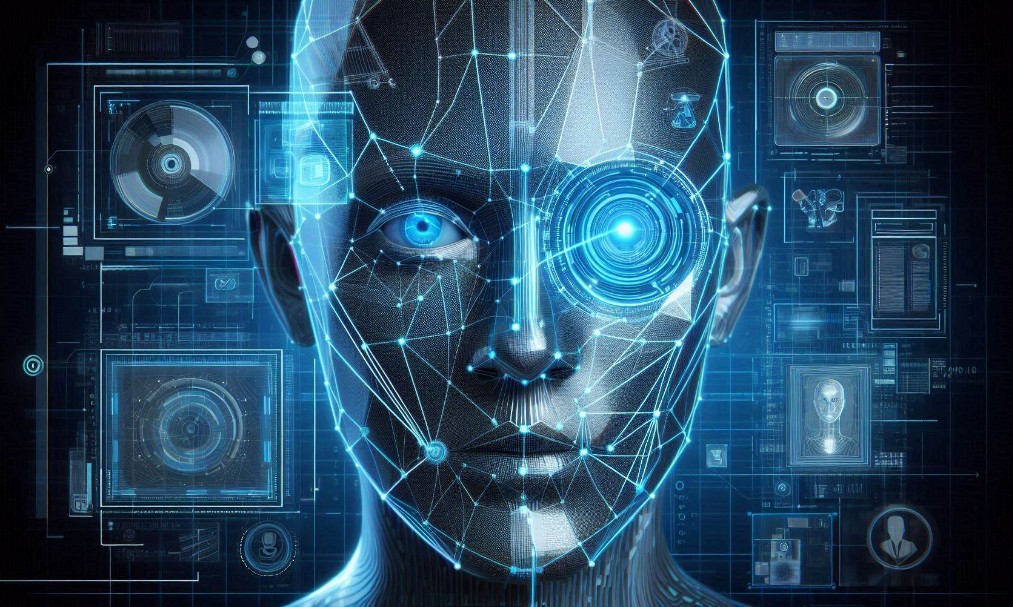In recent years, there has been a significant advancement in the field of Artificial Intelligence (AI) and Augmented Reality (AR). These technologies have become increasingly popular and have the potential to enhance virtual experiences in various fields such as gaming, education, healthcare, and...
AI in Facial Recognition Security or Privacy Threat

The rapid advancement of artificial intelligence has introduced new possibilities for monitoring and identifying individuals in public spaces. These technologies are becoming increasingly prevalent in both private and public sectors, promising enhanced efficiency and safety. However, as these innovations expand, they also raise significant concerns regarding individual freedoms and how personal information is handled.
AI-powered systems offer powerful tools for streamlining identification processes, improving security measures, and preventing criminal activity. Their applications range from access control to monitoring suspicious activities, providing an unprecedented level of surveillance. Yet, alongside these benefits, the potential for misuse remains a major point of contention, especially in how such systems might infringe on personal autonomy.
As more organizations and governments adopt AI technologies, the debate continues to grow. Advocates highlight the increased effectiveness and protection these tools offer, while critics argue that the risks to civil liberties and personal data management could far outweigh any advantages. The balance between these competing interests will shape the future of how artificial intelligence is used in public life.
Benefits of AI in Security
Artificial intelligence has brought significant advancements in the field of protection and monitoring, offering innovative solutions to address various safety concerns. By integrating machine learning algorithms and data analysis, AI can quickly identify patterns and detect potential risks that human operators might miss. This enhanced capability has led to more efficient and reliable systems for preventing incidents and ensuring the well-being of individuals and communities.
Some key advantages of AI in the realm of protection include:
- Real-time analysis: AI can process vast amounts of data instantly, enabling immediate responses to emerging situations.
- Enhanced accuracy: AI systems reduce the likelihood of human error, ensuring more precise identification and decision-making.
- Predictive capabilities: By analyzing historical data, AI can anticipate potential risks before they escalate, allowing proactive measures to be taken.
- Cost-effectiveness: AI solutions can operate around the clock without the need for constant human oversight, reducing long-term operational costs.
- Scalability: AI-powered systems can be easily expanded to cover large areas or multiple environments, providing comprehensive monitoring with minimal added complexity.
These advancements empower organizations to improve their safety protocols, detect suspicious behavior, and respond to emergencies more efficiently. As AI continues to evolve, its role in maintaining public safety will only grow more significant, providing valuable tools for modern protection systems.

Privacy Concerns in Identification Systems
The increasing use of advanced identification technologies has sparked significant debate about the potential impact on individuals' personal freedoms. As these systems become more prevalent, concerns about the collection, storage, and usage of personal data have intensified. While the tools promise enhanced monitoring and improved public safety, their implementation raises serious questions about the level of control individuals have over their own information.
One major issue is the ability of these systems to collect vast amounts of data without explicit consent. Many individuals may not even be aware that their information is being gathered or analyzed. This lack of transparency can lead to misuse, such as unauthorized data sharing or surveillance without accountability. Additionally, the risk of data breaches or leaks becomes more prominent as sensitive information is stored in large databases, vulnerable to attacks.
Another concern is the potential for discrimination or bias. AI-driven systems, while powerful, may inadvertently reflect societal biases in the data they are trained on. This can result in unfair targeting of certain groups, further exacerbating inequalities in law enforcement and public policy. Moreover, the idea of being constantly monitored, even in public spaces, can lead to a chilling effect on freedom of expression and movement.
As these technologies evolve, finding a balance between innovation and protecting individual rights will be crucial. Addressing these concerns through regulation and transparent practices will be essential to ensuring that the benefits of these systems do not come at the cost of personal freedom.
Future of AI in Surveillance
The integration of artificial intelligence into monitoring systems is expected to play an increasingly central role in the future of public safety and law enforcement. As AI technologies evolve, they are set to revolutionize how environments are observed and how data is processed, providing more precise and efficient methods of detecting unusual activities. The future promises not only advancements in accuracy but also the ability to process and analyze vast amounts of data in real time, which will reshape how authorities manage public spaces.
In the coming years, AI is likely to drive even more sophisticated systems capable of identifying patterns and making decisions autonomously, without constant human intervention. These systems could help in preventing incidents before they happen by predicting criminal behavior or identifying potential risks based on previous data trends. Moreover, the scalability of AI solutions will allow them to be deployed in large-scale environments, from city-wide monitoring to crowded events, where traditional methods may struggle.
However, with these advancements comes the need for careful consideration of ethical guidelines and regulatory frameworks to ensure that these technologies are used responsibly. Balancing the benefits of enhanced safety with the potential for misuse will be key to determining how AI is integrated into future monitoring systems. As AI continues to progress, its role in surveillance will undoubtedly grow, but how society chooses to implement it will shape its ultimate impact.



